'Inside the Oscars': Andra Day talks Billie Holiday role and 'truth' coming to light with Black stories
The actress said Billie Holiday "reinvigorated the civil rights movement."
Andra Day opened up on playing renowned jazz singer Billie Holiday in "The United States Vs. Billie Holiday" during episode two of the ABC Audio-produced podcast, "Inside the Oscars®."
During her conversation with The Undefeated's Kelley Carter, Day spoke about embodying the iconic artist and the significance of the film gaining more recognition during award season, among other topics.
The actress is nominated for an Academy Award for best actress for her portrayal of Holiday in the Lee Daniels-directed film, a role for which she has already taken home several awards.
She won the Golden Globe award for best actress in a motion picture drama in February and the award for best actress from the African American Film Critics Association in March.
Day told Carter that being recognized for playing Holiday -- her first acting role -- has made her feel a sense of "alignment."
"I'm just grateful to God because, I mean literally, it was Him who told me, 'I'm gonna cause you to do an act of great faith' and I was like, 'Oh crap, not this one! Can we do another one?'" she shared during the episode.
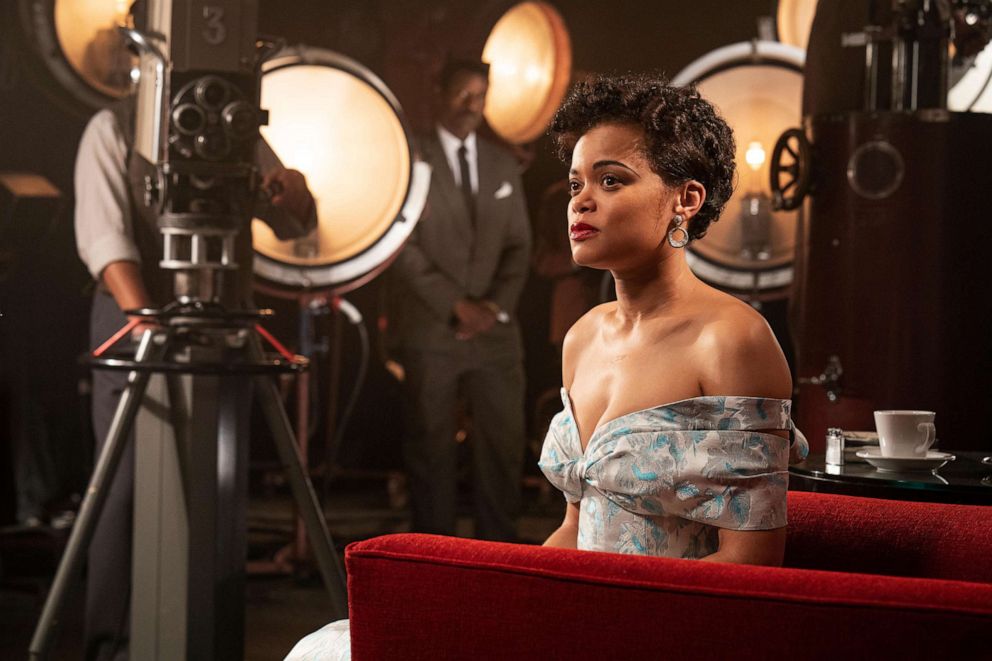
"And I think back to trying to get out of it and trying to self-sabotage -- and that's my tendency," she continued. "He used this role and Billie Holiday's fierce spirit, Lee's fearlessness, my cast, my co-stars, to work a good bit of that out of me. To work out this whole self-sabotaging, imposter syndrome thing out of me. So I feel grateful, and I feel aligned and I'm excited for just ... the culture moving forward."
"The United States Vs. Billie Holiday" follows Holiday's incredible influence through her music -- particularly the impact of her 1939 recording of "Strange Fruit" -- and her interactions with the Federal Bureau of Investigation.
The film's official synopsis reads, "Beginning in the 1940s in New York City, the federal government targeted Holiday in a growing effort to escalate and racialize the war on drugs, ultimately aiming to stop her from singing her controversial and heart-wrenching ballad, 'Strange Fruit.'"
Why Day turned down the role at first
The actress opened up on her hesitation to sign on to the project and admitted her fear was holding her back.
"I was like, 'Nope. Why would you throw me into something that we can all be sure I'm going to be terrible at?" she shared during the podcast. "B. Why would we remake 'Lady Sings the Blues' when Diana Ross killed it? Who the hell's going to read, why would we retouch that? I don't even want anyone to."
"And then C. I'm a huge Billie Holiday fan, like why, now I'm going to be a stain on her legacy? Like that's three strikes," she added.
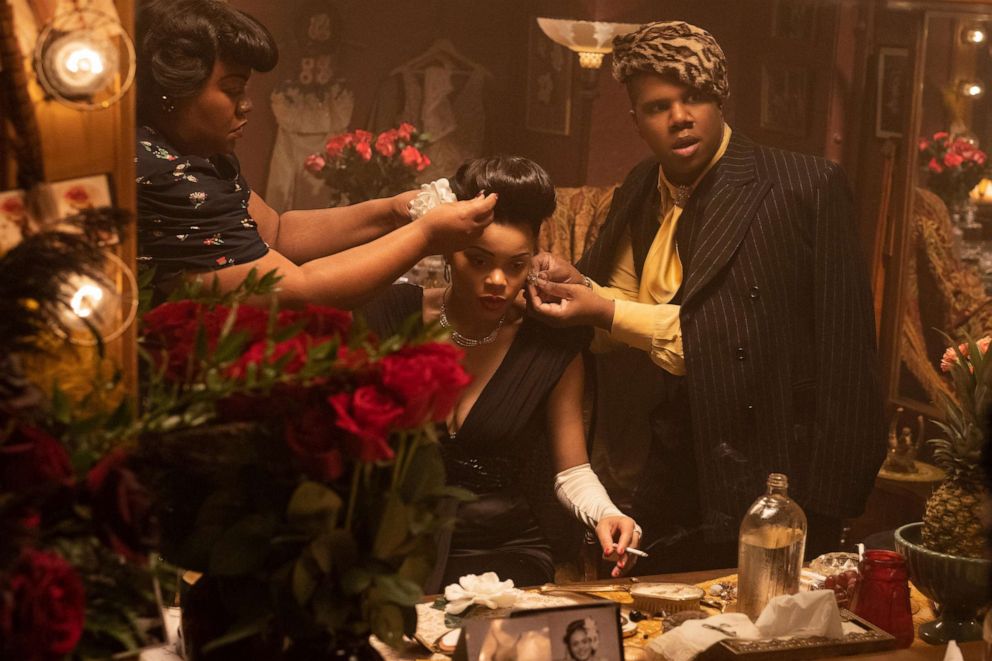
However, she said Daniels' passion and enthusiasm around honoring Holiday's true story compelled her to take a chance and commit to the film.
"It was really finding out that the script would actually be vindicating her legacy," Day said on her deciding factor.
Day on telling Black stories in 2021
When asked why she believes films about Black stories that illuminate darker aspects of U.S. history are coming to the forefront now, the actress said "truth is starting to come to the surface."
Carter pointed out the much of the Black-led films on the awards circuit tackle disturbing periods.
Much of Lee Daniels' drama portrays the cruel treatment and drug targeting Holiday was subjected to at the hands of the FBI due to her protest song, "Strange Fruit." Day even described Holiday as a figure who "reinvigorated the civil rights movement" due to her impact.
Another nominated film, "Judas And The Black Messiah," tells the story of civil rights activist Fred Hampton and his eventual assassination by the Chicago police. "Ma Rainey's Black Bottom" portrays the early exploitation of Black musicians by exhibiting the poor treatment of famous blues singer Ma Rainey, played by Viola Davis, by her white managers.
Describing that much of this material feels "still very familiar" and "raw," Day shared, "When stories like Billie Holiday's hit the TV screens, and stories like Fred Hampton hit the TV screens, people go, "Hold on, what else did we not know?'"
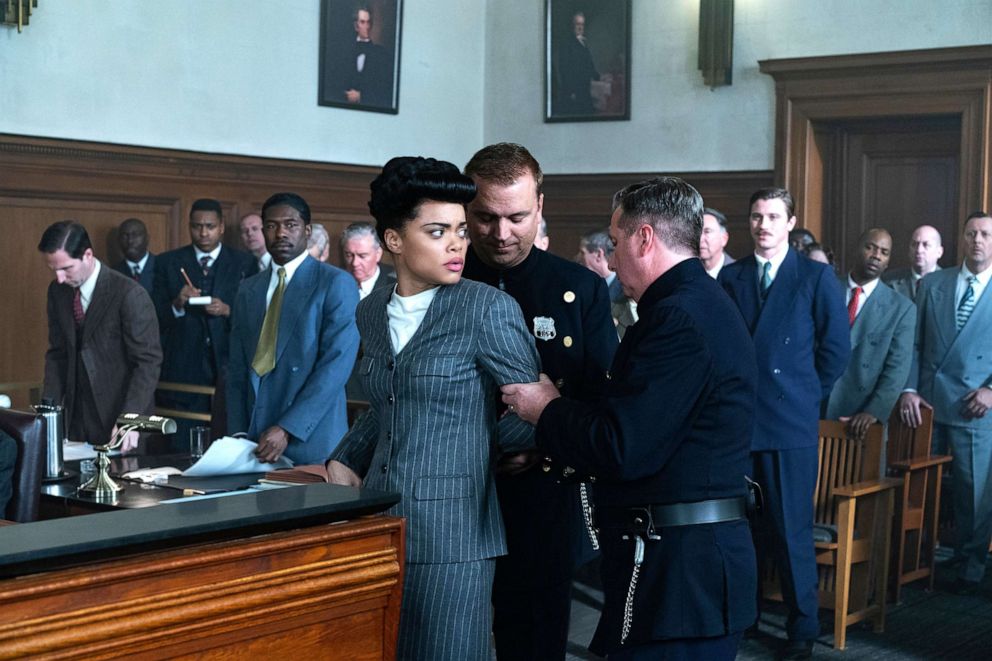
"I think what we're seeing is visibility," she continued. "Not only are these stories worthy and the talent is worthy. We can't survive in all of this darkness and all these lies. And so, I think if we're going to dismantle a system built off those things, then it needs to be injected with truth."
"It's always been timely," she said about films highlighting these aspects of history. "I think other people are just starting to catch up."
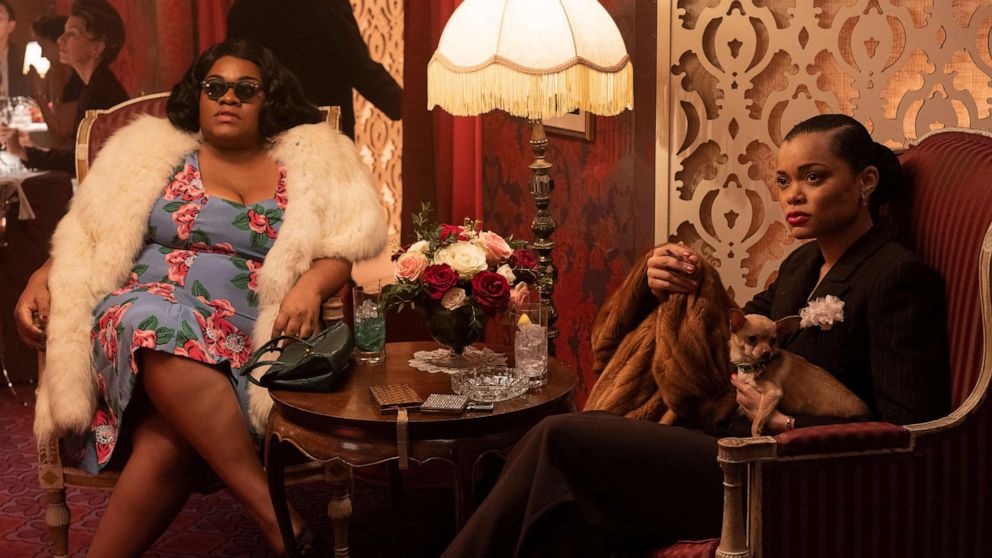
Day on what Holiday would think of the film
When asked what the legendary musician would think of the Hulu film, Day said she believes Holiday would "be floored."
"She really believed that no one would ever know her story," Day said. "She thought she would die in obscurity. Matter of fact, I think, forget the story -- I think she'd be shocked to know the world still knew 'Strange Fruit,' and that she grew to be ... she was hugely famous when she was alive here on Earth, but that her legacy sustained, that people know her name, now today."
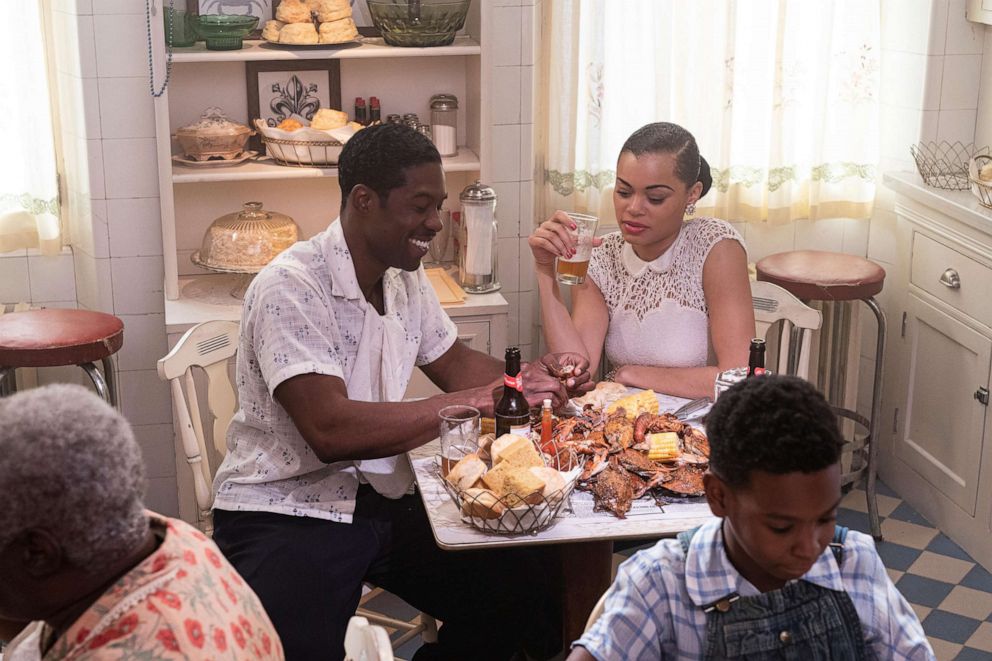
Check out the full episode to learn more about Day's thoughts on the impact of "Strange Fruit," what it was like singing the painful ballad, how this role has impacted her decision-making process when considering future roles and more.
Listen to the six-part series "Inside the Oscars," available for free on all major listening platforms, including Apple Podcasts, Spotify and the ABC News app. New episodes drop every Thursday. The final episode will be released on April 26, the day after the 93rd Oscars.




